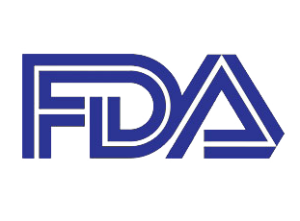FDA – Food and Drug Administration
 The Food and Drug Administration (FDA or USFDA) is an agency of the United States Department of Health and Human Services, one of the United States federal executive departments. The FDA is responsible for protecting and promoting public health through the regulation and supervision of food safety, tobacco products, dietary supplements, prescription and over-the-counter pharmaceutical drugs (medications), vaccines, biopharmaceuticals, blood transfusions, medical devices, electromagnetic radiation emitting devices (ERED), and veterinary products.
The Food and Drug Administration (FDA or USFDA) is an agency of the United States Department of Health and Human Services, one of the United States federal executive departments. The FDA is responsible for protecting and promoting public health through the regulation and supervision of food safety, tobacco products, dietary supplements, prescription and over-the-counter pharmaceutical drugs (medications), vaccines, biopharmaceuticals, blood transfusions, medical devices, electromagnetic radiation emitting devices (ERED), and veterinary products.
The FDA also enforces other laws, notably Section 361 of the Public Health Service Act and associated regulations, many of which are not directly related to food or drugs. These include sanitation requirements on interstate travel and control of disease on products ranging from certain household pets to sperm donation for assisted reproduction.
The FDA is led by the Commissioner of Food and Drugs, appointed by the President with the advice and consent of the Senate. The Commissioner reports to the Secretary of Health and Human Services. The 21st and current Commissioner is Dr. Margaret A. Hamburg. She has served as Commissioner since February 2009.
The FDA has its headquarters in unincoporated White Oak, Maryland.The agency also has 223 field offices and 13 laboratories located throughout the 50 states, the United States Virgin Islands, and Puerto Rico. In 2008, the FDA started opening offices in foreign countries, including China, India, Costa Rica, Chile, Belgium, and the United Kingdom.
In June 1906, President Theodore Roosevelt signed into law the Food and Drug Act, also known as the “Wiley Act” after its chief advocate Dr. Harvey Washington Wiley who riveted the country’s and eventually congress’s attention with public hygiene demonstrations. This act was the basis for the modern USDA, being originally given the name of the Food, Drug, and Insecticide organization. The name eventually was shortened to the Food and Drug Administration (FDA) a few years later.
Organization
 The Office of Regulatory Affairs is considered the “eyes and ears” of the agency, conducting the vast majority of the FDA’s work in the field. Consumer Safety Officers, more commonly called Investigators, are the individuals who inspect production and warehousing facilities, investigate complaints, illnesses, or outbreaks, and review documentation in the case of medical devices, drugs, biological products, and other items where it may be difficult to conduct a physical examination or take a physical sample of the product. The Office of Regulatory Affairs is divided into five regions, which are further divided into 13 districts. Districts are based roughly on the geographic divisions of the federal court system. Each district comprises a main district office, and a number of Resident Posts, which are FDA offices located away from the district office to serve a particular geographic area. ORA also includes the Agency’s network of laboratories, which analyze any physical samples taken. Though samples are usually food-related, some laboratories are equipped to analyze drugs, cosmetics, and radiation-emitting devices.
The Office of Regulatory Affairs is considered the “eyes and ears” of the agency, conducting the vast majority of the FDA’s work in the field. Consumer Safety Officers, more commonly called Investigators, are the individuals who inspect production and warehousing facilities, investigate complaints, illnesses, or outbreaks, and review documentation in the case of medical devices, drugs, biological products, and other items where it may be difficult to conduct a physical examination or take a physical sample of the product. The Office of Regulatory Affairs is divided into five regions, which are further divided into 13 districts. Districts are based roughly on the geographic divisions of the federal court system. Each district comprises a main district office, and a number of Resident Posts, which are FDA offices located away from the district office to serve a particular geographic area. ORA also includes the Agency’s network of laboratories, which analyze any physical samples taken. Though samples are usually food-related, some laboratories are equipped to analyze drugs, cosmetics, and radiation-emitting devices.
The Office of Criminal Investigations was established in 1991 to investigate criminal cases. Unlike ORA Investigators, OCI Special Agents are armed, and are not focused on the technical aspects of the regulated industries. OCI agents pursue and develop cases where criminal actions have occurred, such as fraudulent claims, or knowingly and willfully shipping known adulterated goods in interstate commerce. In many cases, OCI will pursue cases where Title 18 violations have occurred (e.g. conspiracy, false statements, wire fraud, mail fraud), in addition to prohibited acts as defined in Chapter III of the FD&C Act. OCI Special Agents often come from other criminal investigations backgrounds, and work closely with the Federal Bureau of Investigation, Assistant Attorney General, and even Interpol. OCI will receive cases from a variety of sources, including ORA, local agencies, and the FBI, and will work with ORA investigators to help develop the technical and science-based aspects of a case. OCI is a smaller branch, comprising about 200 agents nationwide.
The FDA frequently works in conjunction with other federal agencies including the Department of Agriculture, Drug Enforcement Administration, Customs and Border Protection, and Consumer Product Safety Commission. Often local and state government agencies also work in cooperation with the FDA to provide regulatory inspections and enforcement action.


